Steve Marshall announces successful defense of Trump-era Endangered Species Act reforms

Alabama Attorney General Steve Marshall announced that on Monday, a federal court in California denied a request by environmental groups to set aside the Trump administration’s rules and revive the Obama-era environmental enforcement of the Endangered Species Act. Marshall said that the court’s decision serves to preserve the more balanced enforcement rules of the Trump administration nationwide, including in Alabama. “In 2016, Alabama led a coalition of states to challenge unlawful environmental regulations by the Obama administration that went far beyond what the text of the Endangered Species Act allowed and imposed unfair burdens on private property rights,” said AG Marshall. “That case settled in 2018 when the federal government promised to reconsider the rules. As promised, in 2019, the Trump administration enacted new regulations that made the Endangered Species Act work better to protect both wildlife and property rights. The regulations eased burdens on landowners while providing them incentives to care for the wildlife on their property—a win-win for Alabama’s landowners and the great diversity of wildlife in our State.” “Predictably, the Trump regulations were challenged in federal court in California by a set of radical environmental groups and blue states who opposed the regulations’ cooperative approach to environmental protection,” Marshall explained. “In response, Alabama once again led another coalition of states to intervene to defend the rules. That turned out to be necessary because the Biden administration abandoned defense of the rules, and the federal court vacated them, despite never having identified any legal infirmity with them. We sought relief from the U.S. Court of Appeals for the Ninth Circuit, which agreed that the district court had erred.” “Yesterday, the district court again remanded the rules to the federal agencies to consider as they work on proposing a new set of regulations,” said Marshall. “But this time, the court rejected the environmental groups’ request to vacate the challenged regulations, meaning the Trump regulations will remain in place until new regulations are finalized—a process that is expected to take two years as the agencies provide time for stakeholders, including states and landowners, to provide comments on any proposed changes. Without our intervention, the rules we fought so hard for likely would have been unlawfully vacated as the Biden administration rolled over to appease the environmental groups. And stakeholders likely would have been deprived of their right to participate in the process of shaping any changes to current rules. But because we were there, the rule of law was vindicated.” Attorney General Marshall was joined by attorneys general from Alaska, Arkansas, Idaho, Kansas, Missouri, Montana, Nebraska, North Dakota, Utah, West Virginia, and Wyoming, as well as the Arizona Game and Fish Commission, in defending the Endangered Species Act reforms. The Endangered Species Act was passed by Congress in 1973 (on the heels of a 1967 precursor law) Since the Act’s passage, 99% of the species on the list have been protected from extinction. Marshall was recently reelected to his second term as Alabama’s Attorney General. His second term begins in January. To connect with the author of this story, or to comment, email brandonmreporter@gmail.com.
Congressional Budget Office says inflation to last into 2023
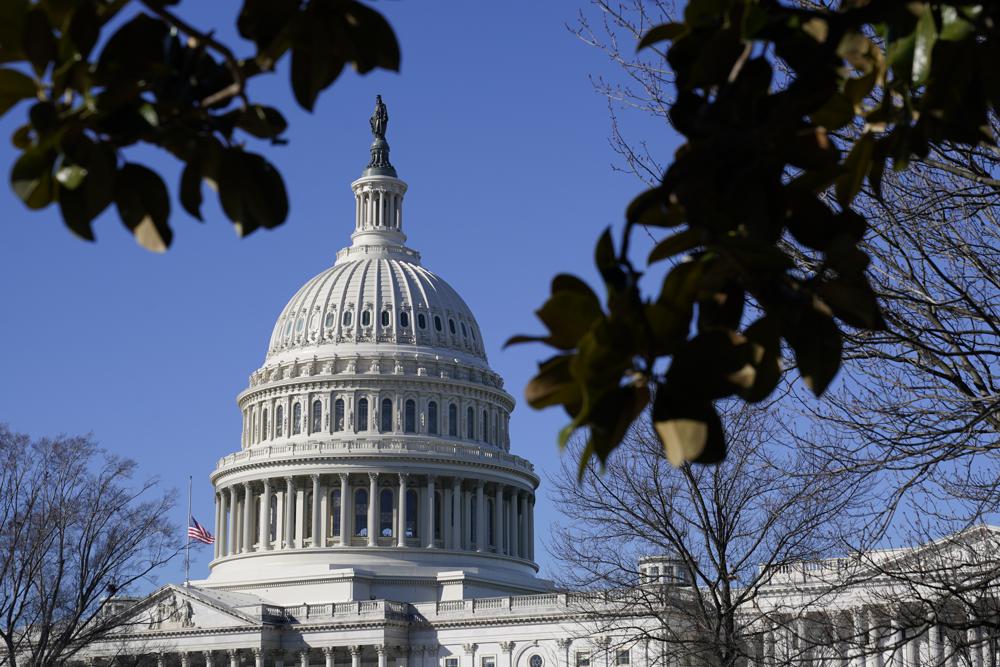
The Congressional Budget Office released an economic outlook Wednesday, saying that high inflation will persist into next year, likely causing the federal government to pay higher interest rates on its debt. The nonpartisan agency expects that the consumer price index will rise 6.1% this year and 3.1% in 2023. This forecast suggests that inflation will slow from current annual levels of 8.3%, yet it would still be dramatically above a long-term baseline of 2.3%. The 10-year estimates do contain positive news as this year’s annual budget deficit will be $118 billion lower than forecasted last year. That’s a byproduct of the end of pandemic-related spending and the solid job growth it helped to spur. As a share of the total economy, publicly held debt will drop through 2023. Still, the accumulated federal debt will likely continue to grow over the next decade to be equal to roughly 110% of U.S. gross domestic product. The Federal Reserve has been trying to reduce inflation by raising its benchmark interest rates, causing the interest charged on 10-year U.S. Treasury notes to increase substantially in recent months. One consequence is that the government will be spending more money this year to service its debt. By 2032, the yearly interest payments will nearly be $1.2 trillion, or more than what the federal government spends on defense. Still, the CBO cautions that its numbers “are subject to considerable uncertainty, in part because of the ongoing pandemic and other world events,” including Russia’s ongoing war in Ukraine. The report accounts at least for the first few months of the war, according to CBO. Economists have said coronavirus relief programs issued by both the Biden and Trump administrations have contributed to higher inflation levels. But high prices have also been fueled by a delay in action by the Fed, supply chain disruptions, and the tumult produced after Russia invaded Ukraine in February. Ben Harris, the Treasury Department’s assistant secretary for economic policy, tweeted on Tuesday that the factors driving inflation also include soaring corporate profits, driven by a lack of business competition — as well as businesses not being fully prepared for the reopening of the economy as pandemic restrictions were lifted. The administration has emphasized that its plan put the U.S. economy into a stronger place relative to the rest of the world because unemployment is a low 3.6%. “The American Rescue Plan has fostered an extraordinarily fast recovery and leaves us in a strong position to address the global challenges posed from supply chains and the economic fallout from Russia’s invasion of Ukraine,” he tweeted. The report says beyond 2032, “if current laws remained generally unchanged, deficits would continue to grow relative to the size of the economy over the following 20 years, keeping debt measured as a percentage of GDP on an upward trajectory throughout that period.” Maya MacGuineas, president of the Committee for a Responsible Federal Budget, told The Associated Press ahead of the release that the pandemic, war in Ukraine, and other factors point to the importance of reducing the annual deficit. “Unfortunately, the underlying story here is one of fiscally unsustainable positions, and on top of that, we have this added challenge of inflation and a reminder that external shocks continue to come at us,” she said. Republished with the permission of The Associated Press.
Joe Biden visits Lockheed plant as weapons stockpile strained

President Joe Biden on Tuesday visited a Lockheed Martin plant that manufactures an antitank weapons system, aiming to herald the U.S.-made arms as a gamechanger for Ukraine’s stiff resistance to Russia’s invasion. But Biden’s visit to the Alabama factory line is also drawing attention to a growing concern as the war drags on: Can the U.S. sustain the cadence in shipping vast amounts of arms to Ukraine while maintaining a healthy stockpile it may need if conflict erupts with North Korea, Iran or elsewhere? The U.S. has provided at least 7,000 Javelins, including some transferred during the Trump administration, or about one-third of its stockpile, to Ukraine in recent years, according to an analysis by Mark Cancian, a senior adviser with the Center for Strategic and International Studies international security program. The Biden administration says it has committed to sending 5,500 Javelins to Ukraine since the February 24 invasion. Analysts also estimate that the United States has sent about one-quarter of its stockpile of shoulder-fired Stinger missiles to Ukraine. Raytheon Technologies CEO Greg Hayes told investors last week during a quarterly call that his company, which makes the weapons system, wouldn’t be able to ramp up production until next year due to parts shortages. “Could this be a problem? The short answer is, ‘Probably, yes,’” said Cancian, a retired Marine colonel and former Office of Management and Budget specialist on Pentagon budget strategy, war funding, and procurement programs. He added that Stingers and Javelins were where “we’re seeing the most significant inventory issues,” and that production of both weapons systems has been limited in recent years. The Russian invasion offers the U.S. and European defense industry a big opportunity to bolster profits as lawmakers from Washington to Warsaw are primed to increase defense spending in response to Russian aggression. Defense contractors, however, face the same supply chain and labor shortage challenges that other manufacturers are facing, along with some others that are specific to the industry. Military spending by the U.S. and around the world was rising even before Russia’s Feb. 24 invasion. Biden’s proposed 2023 budget sought $773 billion for the Pentagon, an annual increase of about 4%. Globally, total military spending rose 0.7% to more than $2 trillion for the first time in 2021, according to an April report from the Stockholm International Peace Research Institute. The war will mean increased sales for some defense contractors, including Raytheon, which makes the Stinger missiles Ukrainian troops have used to knock out Russian aircraft. The company is also part of a joint venture with Lockheed Martin that makes the Javelins. Biden will visit Lockheed Martin’s facility in Troy, Alabama, which has the capacity to manufacture about 2,100 Javelins per year. The trip comes as he presses Congress to quickly approve his request for an additional $33 billion in security and economic assistance for Kyiv. Senate Majority Leader Chuck Schumer, D-N.Y., said Monday he hoped quick bipartisan agreement on the security package could be reached so the Senate could begin considering it “as early as next week.” A White House official, who was not authorized to comment publicly and insisted on anonymity, said the Pentagon is working with defense contractors “to evaluate the health of weapons systems’ production lines and examine bottlenecks” in the manufacturing process. The administration is also considering a range of options, if needed, to boost production of Javelins and Stingers, the official said. Pentagon press secretary John Kirby said Monday that America’s military readiness is not dependent on one system. He said that every time the Pentagon develops a package of weapons and systems to send to Ukraine, the chairman of the Joint Chiefs of Staff and the department do an assessment on what the impact will be on readiness. “It’s not about counting, say, Javelins and being able to say that when you reach a certain level, then all your readiness is gone,” Kirby said. “The Javelin is an anti-armor capability, so we judge it all as a conglomerate of what’s our ability to meet this particular mission set, realizing that a Javelin isn’t the only capability you have against armor.” The lightweight but lethal Javelin has helped the Ukrainians inflict major damage on Russia’s larger and better-equipped military. As a result, the weapon has gained almost mythic regard, celebrated with a Javelin song and images of Mary Magdalene carrying a Javelin becoming a meme in Ukraine. Lockheed Martin CEO James Taiclet said in a recent CNBC interview that demand for the Javelin and other weapon systems would increase broadly over time because of the Russian invasion. He said the company was working “to get our supply chain ramped up.” “We have the ability to meet current production demands, are investing in increased capacity, and are exploring ways to further increase production as needed,” Lockheed Martin, which is based in Bethesda, Maryland, said in a statement. Republished with the permission of the Associated Press.
Eric D. Hargan: $35 insulin? Why didn’t we think of that?

As we move through National Kidney Month, we should keep focused on one of the worst kidney diseases out there: diabetes. Millions of American diabetic patients require regular treatment with insulin, and the prices for many types of insulin can be quite high. In response, President Joe Biden announced in his State of the Union speech that he would be working on capping the price of insulin at $35 per month for everyone. Those of you in the field may have been jolted by this choice of pricing, because the Trump Administration set that exact same dollar amount, $35, on insulin for Medicare patients under a Part D voluntary model in 2020. Now, that was not the only attempt in 2020 to lower insulin costs. Community health centers were also required to provide insulin at near cost to their patients. This requirement on community health centers was overturned by the Biden Administration less than six months ago, and now community health centers are under no such requirement. So, the Administration seems to be going one step forward, one step back on this issue of lowering insulin costs for patients. The details are, naturally, lacking on what exactly President Biden meant by this national price cap on insulin. In this light, it is worth noting that President Biden seems to be following a proposal by Senator Raphael Warnock, which would fix the price of insulin at $35 nationwide, including by private insurers. This legislative proposal is just one of many out now discussing setting fixed prices. Indeed, setting fixed prices on goods seems to be in the air, as it was during the last period of painfully high inflation, the 1970s. When prices are rising quickly, as now for the first time in decades, people instinctively wish for prices to return to stability and think maybe the solution is just to pass a law fixing prices by force. But in debating the issues on insulin pricing, what is often little understood is that there are different kinds of insulin and that these kinds of insulin have wildly different costs. Certain insulins have been engineered to have significant advantages over others and are often much higher-priced. Much effort and ingenuity have been put into developing these new varieties of insulin, and all that effort has come at a cost. In addition, fixing insulin prices nationally may undermine the current system of private negotiations and the progress towards more and better generics. And will the $35 solution offered be the oldest and cheapest, and not necessarily the best, insulin? Now, everyone wants diabetes patients to have access to useful insulin to help them live longer, healthier lives. There is no “anti-access” lobby trying to prevent patients from obtaining medicine. The question is, as it usually is: How? How best to obtain and keep access to ever-better medical goods and services? Is fixing prices for goods nationally the best way to do so? Or, on the contrary, will this action slow continuing research and development into medical solutions in this area? If fixing prices is likely to slow or stop progress in this area, are we so satisfied with the current state of the insulins we have that we have agreed not to progress, and that the diabetic patients needing insulin now have the best solution they ever will? Anyone looking to balance current needs with future ones needs to balance access now with access tomorrow. We do need to use the technologies we currently have to help our citizens. Otherwise, why have them? But at the same time, we must realize that the tools we have now are not perfect, and we can do better. That realization must drive us to make sure that our system continues to drive towards better solutions, including ever-better technologies. While the cost of drugs is high, the cost of fixing the price of drugs may be higher still. Eric D. Hargan ( @EricDHargan ) founded the Hargan Group and was the deputy secretary of the Department of Health and Human Services after serving as acting secretary. Republished with the permission of The Center Square.
Barry Moore signs letter urging Joe Biden to hold China accountable
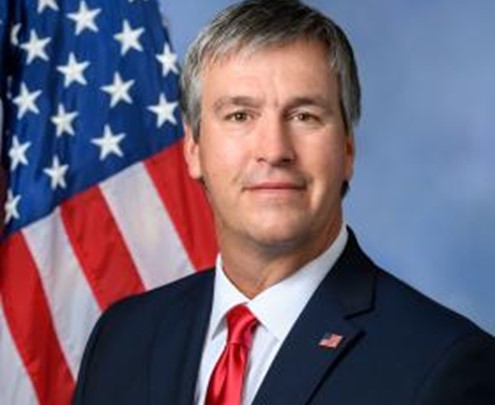
Rep. Barry Moore joined 57 other members of Congress in signing a letter to President Joe Biden urging him to hold the Chinese Communist Party accountable for neglecting their commitments made during the Trump administration to make the U.S. – China agricultural trade relationship more balanced and reciprocal. Two years ago, the United States and China signed a two-year trade deal that required China to make reforms to its trade regime and import $73.9 billion of U.S. agricultural products in 2020 and 2021 combined. China failed to live up to that commitment by $16 billion. The members urged President Biden, U.S. Secretary Thomas J. Vilsack, and U.S. Trade Representative Katherine Tai to rectify the situation and stand for U.S. agricultural producers. “President Biden’s weakness on the global stage in Afghanistan, Ukraine and beyond has sent the message that other nations can walk all over us, so this administration must take immediate actions to stand up for America and ensure nations like China honor their commitments,” said Moore in a press release. “American farmers and ranchers produce the highest quality crops, livestock, poultry, and dairy products in the world, and we cannot continue to allow China to target them without consequences. The ability of U.S. agriculture to participate in a worldwide marketplace is essential to our markets at home and the ability to make a profit, and I am proud to join my colleagues to demand immediate action from the President.” “President Biden either needs to force China to comply with their end of the agreement or punish them for failing to do so. That’s how deals work,” said Rep. Tracey Mann. “This administration must address the full suite of issues in a comprehensive and holistic manner and hold the Chinese Communist Party accountable for treating America and its farmers, ranchers, and agricultural producers like a doormat. My colleagues and I are calling for immediate action.” “America must enforce our agreements,” said Rep. August Pfluger. “I am proud to join my colleagues in calling on President Biden to hold China accountable for their Phase One commitments. This administration must take immediate action and stand up for the agricultural producers that feed and clothe our nation. It’s time to put the United States first and stand up to our adversaries.”
16 Republican AGs seek federal pressure on China, Mexico over fentanyl crisis
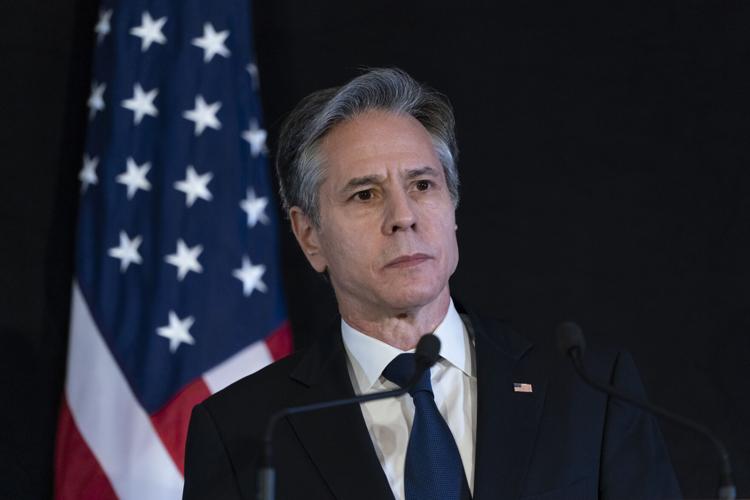
Sixteen Republican state attorneys general are calling on Secretary of State Antony J. Blinken to take action against China and Mexico for their role in creating a fentanyl crisis in the U.S. “China’s complete unwillingness to police the production and distribution of fentanyl precursors and Mexico’s subsequent failure to control illegal manufacturing of fentanyl using those precursors,” the attorneys general argue, poses a daily threat to Americans. West Virginia and Arizona are leading the effort. Joining them are the attorneys general of Alabama, Alaska, Arkansas, Florida, Georgia, Indiana, Kansas, Kentucky, Mississippi, Missouri, Montana, South Carolina, South Dakota, and Texas. They say they’ve witnessed an “extraordinary tide of senseless death from fentanyl” in their states. They’ve also acknowledged separately that the national opioid crisis can be attributed to drug addiction stemming from doctors prescribing opioids and the pharmaceutical companies that manufacture and advertise them, according to settlements AGs have reached with opioid manufacturers and distributors in multiple states. But they also attribute the production of illicit opioids plaguing the U.S. to Chinese and Mexican criminals whose governments are reportedly aiding them. “The situation today is worse than ever before,” the AGs write, pointing to CDC overdose data. “Nearly all the recent national increases in drug overdose deaths are due to fentanyl and other synthetic opioids, with deaths from other drugs remaining flat or increasing only slightly. As more Chinese precursors feed a Mexican drug-manufacturing apparatus in which adulteration is more common, overdose can only be expected to rise further.” In 2020, three out of every four drug deaths in West Virginia were attributed to fentanyl, a number nearly double that from 2019. Overdose deaths in Arizona increased 33% from February 2020 to April 2021, with synthetic opioids like fentanyl accounting for nearly two-thirds. Fentanyl-related deaths in Montana increased by 116% from 2019 to 2020. In Florida, fentanyl was the leading cause of drug deaths in 2020. Alaska saw a 287% increase in the number of fentanyl overdose deaths from 2019 to 2020. These are only some of the drug death statistics among the 16 states represented in the letter. Nationally, fentanyl is the leading cause of death for adults between the ages of 18 and 45, according to an analysis of CDC data published by the nonprofit Families Against Fentanyl. “China has turned a blind eye as its citizens have forged an international triangle of death with Mexico. Everyone now understands that Chinese drug producers are shipping fentanyl precursors to Mexico, where cartels make them into fentanyl and traffic it over land into the United States,” the AGs write. After years of pressure by the U.S. federal government, China began taking action against illicit fentanyl manufacturing in its country in 2019, the AGs argue, pointing to reports published by the U.S. State Department. In 2019, after reaching an agreement with the Trump administration, “seizures of fentanyl directly shipped from China to the United States shrunk dramatically from over 128 kilograms seized in 2017 to less than half a kilogram in 2020.” But since then, most fentanyl available in the U.S. has been trafficked from Mexico across the southern border, where “seizures increased from approximately 1,187 kilograms in 2019 to approximately 2,939 kilograms in 2020,” according to a March 2021 Department of State report. “Chinese chemical manufacturers are now making and sending the raw ingredients to make fentanyl to Mexican drug cartels, which are in turn making and trafficking fentanyl at an industrial scale,” the AGs write. “But in the face of this evolving and significant problem, the federal government has seemed content to stand by.” China isn’t imposing strict enough enforcement actions on Chinese perpetrators involved, they argue, which is only part of the problem. The AGs cite a 2018 Government Accountability Office report that states, “China’s insufficient regulatory oversight of the precursor chemical industry, corruption among government and business officials, lower production costs, myriad transportation options, and illegal factories make it an ideal source for precursor chemicals intended for illicit drug production.” Fentanyl and fentanyl-laced pills are being manufactured in Mexico and sent north through a network of drug and human smuggling operated by the cartels on both sides of the U.S.-Mexico border. Some of the AGs listed in the letter have sued the Biden administration for not enforcing federal immigration law, with Texas suing seven times. Mexico must “also be pressured to take swift and forceful action against the cartels that are producing finished fentanyl and trafficking this poison across the border into our country,” the AGs argue. “The Mexican government’s negligence in permitting the erection of industrial-scale manufacturing of fentanyl is inexcusable,” they write. “Seeking redress and correction of this cataclysmic failure of Mexico must immediately be elevated to the highest level of bilateral engagement with our Southern neighbor.” Blinken’s office hasn’t yet replied to their letter. Last year, the White House made recommendations to Congress on how to reduce the supply and availability of fentanyl. In Biden’s fiscal 2022 budget proposal, $41 billion was allocated to national drug program agencies. By Bethany Blankley | The Center Square contributor Republished with the permission of The Center Square.
White House, January 6 committee agree to shield some documents
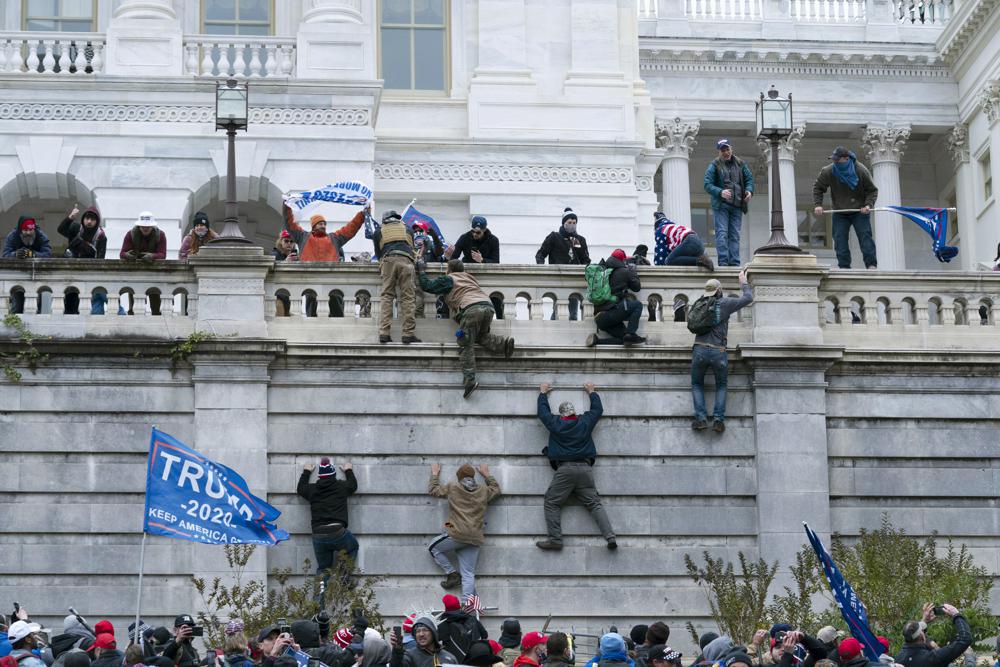
The House committee investigating the January 6 insurrection at the Capitol has agreed to defer its attempt to get hundreds of pages of records from the Trump administration, holding off at the request of the Biden White House. The deferral is in response to concerns by the Biden White House that releasing all the Trump administration documents sought by the committee could compromise national security and executive privilege. President Joe Biden has repeatedly rejected former President Donald Trump’s blanket efforts to cite executive privilege to block the release of documents surrounding that day. But Biden’s White House is still working with the committee to shield some documents from being turned over. Trump is appealing to the Supreme Court to try to block the National Archives and Records Administration, which maintains custody of the documents from his time in office, from giving them to the committee. The agreement to keep some Trump-era records away from the committee is memorialized in a December 16 letter from the White House counsel’s office. It mostly shields records that do not involve the events of January 6 but were covered by the committee’s sweeping request for documents from the Trump White House about the events of that day. Dozen of pages created January 6 don’t pertain to the assault on the Capitol. Other documents involve sensitive preparations and deliberations by the National Security Council. Biden’s officials were worried that if those pages were turned over to Congress, that would set a troublesome precedent for the executive branch, no matter who is president. Still, other documents are highly classified, and the White House asked Congress to work with the federal agencies that created them to discuss their release. “The documents for which the Select Committee has agreed to withdraw or defer its request do not appear to bear on the White House’s preparations for or response to the events of January 6, or on efforts to overturn the election or otherwise obstruct the peaceful transfer of power,” White House deputy counsel Jonathan Su wrote in one of two letters to the committee obtained Tuesday by The Associated Press. Su wrote that for the committee, withholding the documents “should not compromise its ability to complete its critical investigation expeditiously.” Committee spokesman Tim Mulvey said: “The committee has agreed to defer action on certain records as part of the accommodations process, as was the case with an earlier tranche of records. The Select Committee has not withdrawn its request for these records and will continue to engage with the executive branch to ensure the committee gets access to all the information relevant to our probe.” For the last several months, the National Archives has been transmitting tranches of documents to the White House and to lawyers for Trump to determine whether they contain any privileged information. Trump has raised both broad objections to the release of the documents as well as specific concerns about particular documents. The National Archives has said that the records Trump wants to block include presidential diaries, visitor logs, speech drafts, handwritten notes “concerning the events of January 6” from the files of former chief of staff Mark Meadows, and “a draft Executive Order on the topic of election integrity.” Biden has repeatedly rejected Trump’s claims of executive privilege over those documents, including in a letter sent December 23 regarding about 20 pages of documents. “The President has determined that an assertion of executive privilege is not in the best interests of the United States and therefore is not justified,” White House counsel Dana Remus reiterated in the latest letter. Trump has taken to the courts to block the document releases. A federal appeals court ruled this month against Trump, and he has filed an appeal to the Supreme Court, though the high court has yet to decide whether to take up the case. Judge Patricia Millett, writing for the court in the December 9 opinion, said Congress had a “uniquely vital interest” in studying the events of January 6, and Biden had made a “carefully reasoned” determination that the documents were in the public interest and that executive privilege should therefore not be invoked. Trump also failed to show any harm that would occur from the release of the sought-after records, Millett wrote. “On the record before us, former President Trump has provided no basis for this court to override President Biden’s judgment and the agreement and accommodations worked out between the Political Branches over these documents,” the opinion stated. Republished with the permission of the Associated Press.
AG Steve Marshall fights to protect Alabama land from Biden administration ‘overreach’
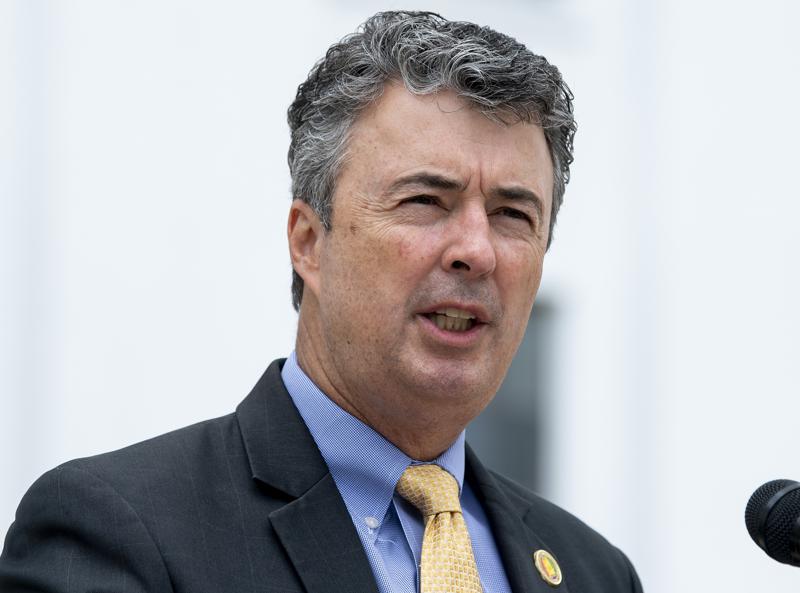
Attorney General Steve Marshall announced he is leading a national coalition of 18 attorneys general urging the Biden administration not to reverse Trump era definitions of “critical habitat” that may affect property use and value. Marshall’s letter to the U.S. Fish and Wildlife Service and the National Marine Fisheries Service was cosigned by the attorneys general of Alaska, Arizona, Arkansas, Indiana, Kansas, Kentucky, Louisiana, Mississippi, Montana, Nebraska, Ohio, Oklahoma, South Carolina, Texas, Utah, West Virginia, and Wyoming. The issue involves the Endangered Species Act and the federal government’s authority to designate land or water as a “critical habitat” for species the government considers endangered. Property that receives this designation is often subject to strict restrictions which can affect property value and use. In 2017, the Obama administration argued that an area could be a “critical habitat” for a species even if the species could not survive there. In response, Marshall led a group of states opposing that approach, and the Supreme Court held that the Obama administration had overreached. Marshall supported Trump administration reforms that protected species without crippling the rights of landowners. The Biden administration is now considering changing the Trump administration’s definition of “habitat” for use in “critical habitat” designation. In the letter, the group urged the agencies to reject the Biden administration’s efforts to roll back the reformed regulations. Under current rules, an area may be designated as critical habitat only if it currently or periodically has the conditions and resources to support a species, and not just because such conditions could be developed in the future. Furthermore, current rules provide an important balance, providing analysis of the economic impact and whether excluding an area from critical habitat would result in the extinction of a species. Marshall stated, “I will not allow the Biden administration’s misplaced priorities and overreach to destroy the vital progress we have made. If federal bureaucrats are allowed to designate land as critical habitat for species even though that species does not and cannot live there, then there is no limit to the areas they can claim. The results could be devastating for Alabama’s farms, loggers, and miners as well as for landowners throughout our nation.”
Mo Brooks calls for Anthony Fauci’s termination in midst of controversial email release
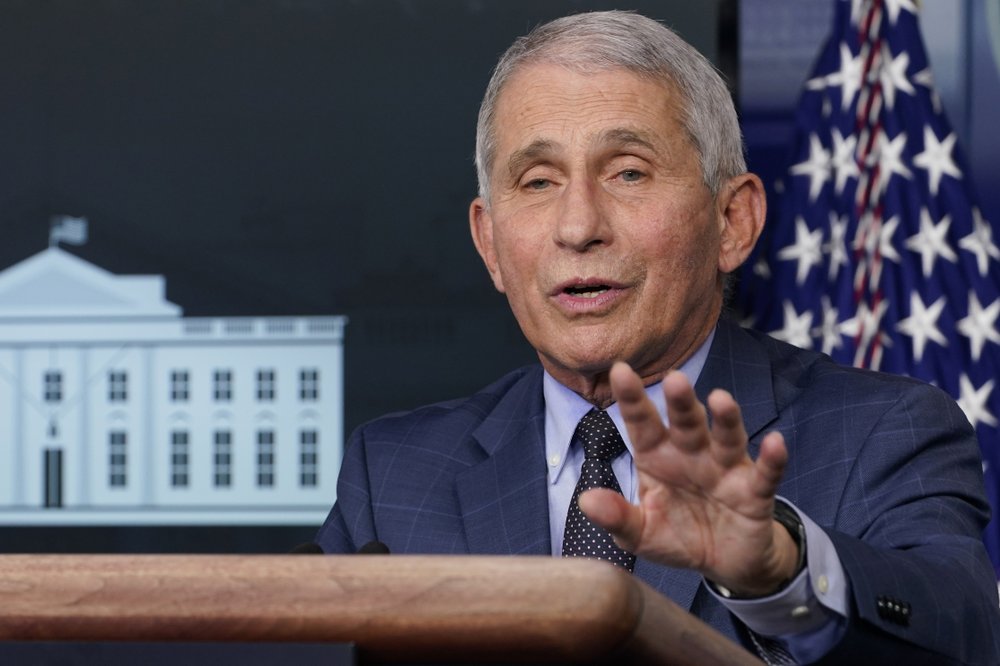
Dr. Anthony Fauci, arguably America’s most well-recognized health official in the battle against COVID-19, assumed a central role in political controversy following a newly released slough of last year’s emails, giving rise to concerns about COVID-19’s origin and the controversial scientific research U.S taxpayers have funded. Yesterday, Congressman Mo Brooks (AL-05) joined several of his colleagues in a news conference to discuss auditing the correspondence and financial statements of Dr. Fauci. Fauci is no stranger to the spotlight, as the immunologist was one of the world’s most frequently-cited scientists across all scientific journals from 1983 to 2002, in addition to the world’s 10th most-cited HIV/AIDS researcher from 1996-2006. He has advised seven Presidents and was awarded a Presidential Medal of Freedom by President George H.W. Bush in 2008 for his efforts on an AIDS relief program. Serving as director of the National Institute of Allergy and Infectious Diseases (NIAID) since 1984, Fauci is perhaps more widely recognized for leading the nation’s COVID-19 response as a White House coronavirus advisor during the Trump Administration. He continues to lead the nation’s pandemic response during his current role as chief medical advisor in the Biden Administration. However, Fauci’s consistently shifting narratives throughout the pandemic, in addition to frequent opposition towards President Donald Trump’s leadership, resulted in a sizable number of public critics, many of which included Trump White House officials. Peter Navarro, a Harvard-trained economist and China hawk who served as a top trade and economic policy advisor to President Trump, publicly criticized Dr. Fauci in a USA Today op-ed, outlining the many instances Fauci was mistaken during the pandemic. USA Today promptly attached a remorseful precursor to the article; an apologetic note addressed to readers for publishing any criticism of Fauci. One of the most notable examples Navarro specifies is the predictive memos he sent in January and February 2020, which grimly anticipated COVID-19 to be a deadly and impactful global pandemic. Senior officials shrugged off these warnings, including Fauci, due to Navarro’s hawkish views on China. “The lack of immune protection or an existing cure or vaccine would leave Americans defenseless in the case of a full-blown coronavirus outbreak on US soil,” Navarro’s January 29 memo to the National Security Council states. “The lack of protection elevates the risk of the coronavirus evolving into a full-blown pandemic, imperiling the lives of millions of Americans.” Weeks after Navarro’s warning was sent out, Fauci assured the media just how worried the American people should be about the pandemic when he expressed, “The danger of getting coronavirus now is just minusculely low,” Fauci stated. “As of today, on the 17th of February, the risk is really relatively low.” Since then, public criticism of Fauci continues to escalate as 3,000 pages of his emails from March and April 2020 were obtained under the Freedom of Information Act (FOIA) following a lawsuit filed by taxpayer watchdog group, the White Coast Waste Project. “Taxpayers have a right to know what the NIH knew about how its money was being spent at the Wuhan animal lab, and what NIH knew about a potential lab leak in late 2019 and early 2020,” stated Justin Goodman, vice president of advocacy and public policy at the White Coat Waste Project. “Transparency and accountability at home and abroad are critical in the quest to identify the origin of the COVID-19 pandemic in order to prevent another outbreak.” Fauci’s obtained emails point to the fact that he was indeed warned of the possibility that COVID-19 was engineered, a theory he remained adamantly opposed to throughout the pandemic. Kristian Andersen, the head of a viral genomics lab at Scripps Research in La Jolla, CA, emailed Fauci in February 2020 entertaining the possibility of COVID-19’s lab-based origin, “The unusual features of the virus make up a really small part of the genome (<0.1%) so one has to look really closely at all the sequences to see that some of the features (potentially) look engineered.” This week, Anderson addressed his involvement in these recently released emails, assuring that his newfound research discourages any lab-based scenarios while also claiming it is scientifically impossible to determine the origins of the pandemic, “As we stated in our article last March, it is currently impossible to prove or disprove specific hypotheses of SARS-CoV-2 origin.” Additionally, these emails raise questions surrounding the type of research U.S. taxpayers are funding. Under Fauci’s four-decade-long leadership, the NAIAD resides within the National Institute of Health (NIH), which allocates 80% of its federal funds to scientific research, including grants to foreign organizations. Fauci swore under oath that no taxpayer funds were used to fund research in Wuhan. However, in a later congressional hearing, he stated that the NIH earmarked $600,000 to study coronaviruses in Wuhan. NIH Director Dr. Francis Collins confirmed that $3.7 million in federal funds were sent to EcoHealth Alliance, a global nonprofit, of which $600,000 went to the Wuhan Institute of Virology (WIV). Fauci’s emails show a message received from the President of EcoHealth Alliance, Peter Daszak, thanking him for rejecting any lab-leak theories in April 2020. Daszak wrote to Fauci, “I just wanted to say a personal thank you on behalf of our staff and collaborators, for publicly standing up and stating that the scientific evidence supports a natural origin for COVID-19 from a bat-to-human spillover, not a lab release from the Wuhan Institute of Virology.” Daszak adds, “Your comments are brave, and coming from your trusted voice, will help dispel the myths being spun around the virus’ origins.” These concerns have led Congressional Republicans, including House Minority Leader Kevin McCarthy (R-CA), to call for Fauci’s dismissal from his role as NIAID director. Yesterday, Congressman Mo Brooks joined GOP lawmakers in a press conference to announce his support of the Fire Fauci Act. The bill would bring Dr. Fauci’s taxpayer salary to $0 and will require the Senate to confirm another individual to fill his position. “Dr. Fauci is consistent in just one thing and that is inconsistency,” Brooks said. “Why
US won’t expel migrant children detained in Texas hotel

The Trump administration has agreed not to expel a group of immigrant children it detained in a Texas hotel under an emergency declaration citing the coronavirus and will instead allow them to seek to remain in the U.S., the administration said Monday. The move comes days after The Associated Press first reported on the U.S. government’s secretive practice of detaining unaccompanied children in hotels before rapidly deporting them during the virus pandemic. Government data obtained by AP showed the U.S. had detained children nearly 200 times over two months in three Hampton Inn & Suites hotels in Arizona and two Texas border cities. But the Trump administration has not said it will stop using hotels to detain children. The legal groups that sued Friday night said they still plan to fight the larger practice in court. Their agreement only covers 17 people known to have been detained as of Thursday at the Hampton Inn in McAllen. After the hotel’s owner said Friday it would end reservations of rooms used for child detention, U.S. Immigration and Customs Enforcement removed the children from the hotel but refused to say where it had taken them. Now, immigration authorities will transfer the children to shelters operated by the U.S. Department of Health and Human Services, where they will have access to lawyers and should eventually be placed with family sponsors as they pursue asylum cases or other immigration relief to try to remain in the country. The legal groups withdrew their request Sunday for a temporary restraining order. “The children in this hotel averted disaster only because we happened to hear about them before they were deported, yet hundreds if not thousands of other children are being sent back to harm in secret,” said Lee Gelernt, a lawyer for the American Civil Liberties Union. “The government must stop expelling children in secret without giving them asylum hearings.” Federal anti-trafficking laws and a two-decade-old court settlement that governs the treatment of migrant children normally require that most children be sent to shelters operated by HHS. The shelters are licensed by the states where they’re located and generally have bedrooms, recreation areas, and schooling. Instead, more than 2,000 children have been expelled since March, when the Centers for Disease Control and Prevention issued a declaration allowing immigration agencies to effectively shut down the asylum process out of concern about the spread of COVID-19. The AP found that contractors paid by U.S. Immigration and Customs Enforcement have held children as young as 1 in Hampton Inns. ICE called the contractors from MVM Inc. “transportation specialists” and refused to confirm whether they had passed FBI background checks or had backgrounds in child care. Instead, it said the contractors were “non-law enforcement staff members trained to work with minors and to ensure that all aspects of the transport or stay are compliant” with the court settlement known as the Flores agreement. An advocate with the Texas Civil Rights Project who walked through the Hampton Inn in McAllen on July 17 saw people in scrubs going room to room on the fourth and fifth floors of the hotel caring for children. The advocate, Roberto Lopez, said he saw one small child holding onto a gate in a doorway as an adult on the other side played with him. On Thursday, video posted by the project showed one of its lawyers trying to enter the fourth floor to find children. The video shows three men in plainclothes confronting him, then shoving him back and slamming him into an elevator wall. The records indicate the children were not accompanied by a parent but don’t say more about the circumstances of their crossing the border. In the past, some very young children have been brought by older siblings or other relatives. Others have been sent by parents waiting for their court dates in refugee camps on the U.S.-Mexico border with hopes they will be placed with relatives. A spokeswoman for Hilton, which owns the Hampton Inn brand, said franchisees owned all three Hampton Inns and the others in Phoenix and El Paso, Texas, would also stop child detention in its hotels. Hilton said in a statement that the company expected all of its franchisees “to reject business that would use a hotel in this way.” Andrea Ordin, a monitor appointed by the federal judge who oversees the Flores agreement, called on the U.S. government last week to stop detaining children in hotels, citing the lack of oversight and standards and the threat that children could suffer emotional and physical harm. The Trump administration responded by questioning Ordin’s authority to issue the report. Ordin’s report was “wholly outside the scope” of her responsibility, wrote Sarah Fabian, a U.S. government lawyer who was previously criticized for suggesting in court that the government may not have to provide children with toothbrushes in Border Patrol custody. Judge Dolly Gee, who oversees the Flores settlement, wrote Saturday that hotel detention does fall under the scope of Ordin’s duties. ___ This story has been corrected to show that the agreement only covers 17 people known to have been detained as of Thursday. Republished with the permission of the Associated Press.
Email Insights: Many regulations have been waived to help fight COVID-19
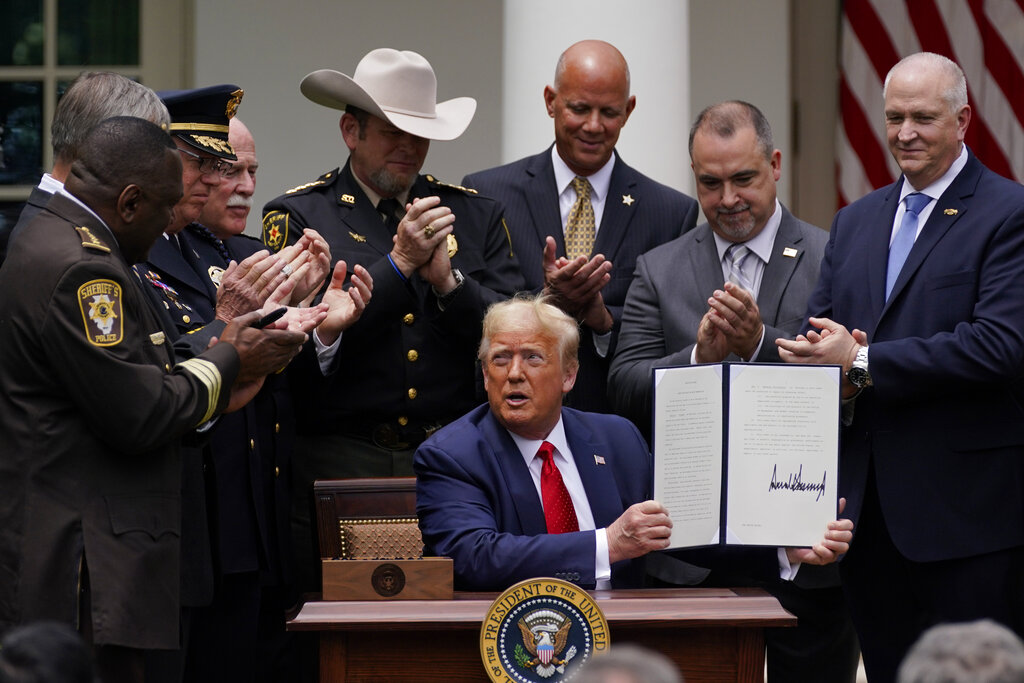
Several regulations were suspended to lessen the impact of the coronavirus pandemic.
On NYT op-ed: A White House “resistance” shouldn’t be all that surprising
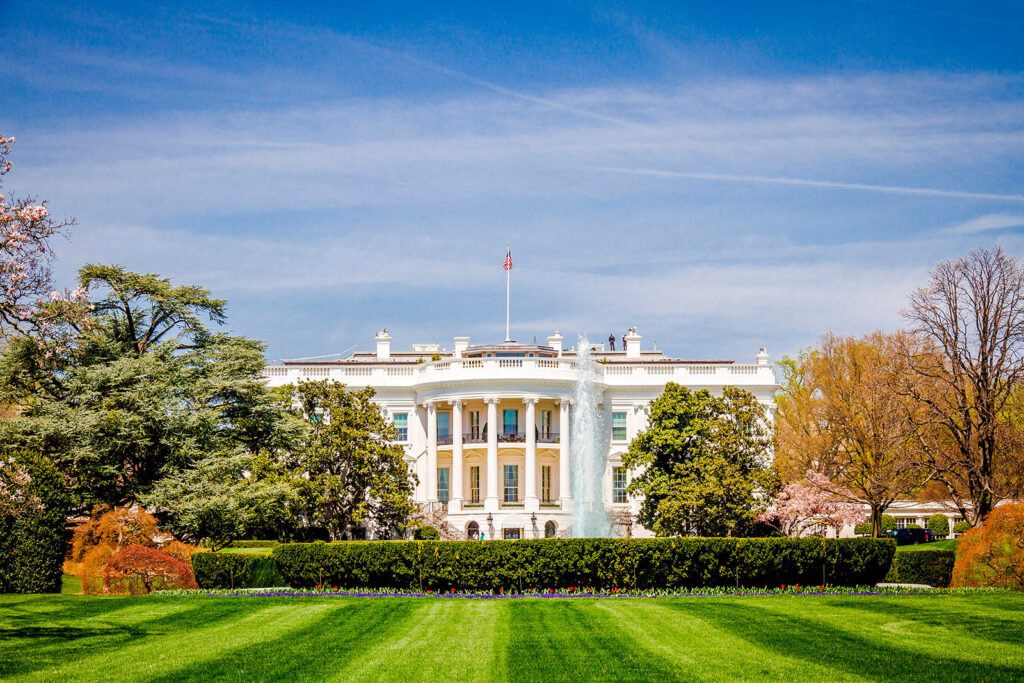
The story of the day is about the anonymously posted opinion column by the New York Times (NYT) written by a “senior staffer within the Trump White House.” It seems the world is going mad about the whole thing. I’m going to narrow my thoughts on this whole ordeal to four points (in no particular order): 1. If you did not realize there are good, disciplined staffers working in the Trump White House, curbing his less than professional and diplomatic faults and weaknesses, then you haven’t been paying attention. The author called it a resistance and everyone is freaking out about that but what is wrong with resisting the impulses of a man who has almost no impulse control? The chaos around Trump comes from him bringing in people with no loyalty or experience like Omarosa Manigault-Newman or the insanity that was Anthony Scaramucci. Should we fear or condemn those who would want to protect the president from his own bad decisions? Chaos comes from the problems they have finding and retaining experienced professionals and so misfits run the halls and talk out of turn to reporters and friends and anyone who will listen to their tales of misadventures in a White House that is constantly turned on its ear. The steadiness of the ship comes from good-hearted, principled people likes Press Secretary Sarah Huckabee Sanders or those who have served our nation and consider their role to serve the office of the president more so than the man like General John Kelly. It comes from the professionals whose names you never hear because they have their nose to the grindstone working. It comes from those spread out not just throughout the White House but the entire administration. Of course, there are factions within the White House there aways has been but in this administration there is no doubt that it’s worse than ever. There’s no doubt that it’s encouraged from Trump himself and his style of management (or mismanagement at time). There’s the do nothings vs. the do gooders. The loyal to Trump vs those loyal to the nation vs. those seeing their own 15-minutes of fame and/or access to power and later money. Of the first two groups there may be some cross-over but I suspect there’s not many who don’t tolerate Trump to get the job done or who don’t like the man but dislike the way he communicates or “rules.” 2. The anonymous source is likely to be outed, and there’s very little chance that they stay anonymous for even the next week. They knew that going into this. This has already turned into an all-out witch hunt in which everybody wants to know who is responsible to penning this op-ed. From reporters to those within the White House who agree or even disagree with the sentiments, to opponents on the Hill — it’s only a matter of time before people know who this is. Secrets do not keep well in DC. Secrets do not keep well within Trump Administration. Thus it would be premature to speculate as to this person’s motives and agenda until we know what their role inside the White House is. This is a chance the author took and they had to know what they were doing and what the costs would be when they were found out. 3. The President has called writing this op-ed “treasonous.” The First Lady just put out a response saying and I’m paraphrasing here, if you’re not here to do right by the administration, you need to leave. I wouldn’t agree that it was treasonous to the nation to write the op-ed but I agree that it was unprofessional and disloyal. Politics is a world in which loyalty and honoring the team you’re a part of are of the utmost importance. From day one people in this administration have bad mouthed and back-stabbed one another and you don’t have to look much further than the Trump vs. Jeff Sessions tweets or remarks to see that it’s welcome and encouraged behavior. If Trump wants more loyalty he should lead by example. That said, see #1. There are good people in the administration and that is obvious by the fact things haven’t totally hit the fan. Yet. 4. On the NYT printing an anonymous op-ed I must say I’ve had individuals approach me since I first began Alabama Today, who wanted to pen columns anonymously. This is a very tricky part of media: You want to get the story out but you have to consider many factors including maintaining the integrity of your publication and reputation for truth and honesty. There are a lot of things than can, and probably should be said in the world and in politics, if it weren’t for fear of making people angry, burning bridges and even retaliation I feel like we’d have a lot more of these types of stories. On the Hill people know and speak in hushed tones of improprieties for months sometimes years before a reporter has enough to go on to print something. Welcoming anonymity in these cases would open up the flood gates for those with bad motives. The question here is what was the movitves of the author of the story at hand? It reads as sincere and not politically motivated in the way in which a lot of attacks are. This is why I agree that the NYT was correct in publishing the article. If everything that the staffer said that they knew and experienced is actually true. Finally, what do I think about this as a whole? The Trump Administration has done something that has not been talked about before. Which is they’ve shined a spotlight on those working behind the man. Generally when you’re looking at a President, or Governor, or even Member of Congress, there are only one or two people in their sphere that world is able to identify — the Karl Rove‘s, Dana Perino‘s, the Tony Snow‘s, David Axelrod’s, Rahm Emanuel‘s of


